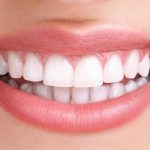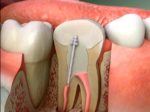Chewing Pain: Understanding Why Your Teeth Hurt When Chewing and How to Find Relief

Chewing pain is a common dental issue that can cause severe discomfort and disrupt daily life activities, such as eating and speaking. It occurs due to several reasons, including tooth decay, gum disease, cracked or broken teeth, and jaw joint problems. If left untreated, it can lead to more severe conditions, such as infection and tooth loss. Therefore, understanding the causes of chewing pain and finding effective relief is critical to maintain excellent oral health and overall wellbeing. Tooth pain is an unpleasant sensation that can range from mild to excruciating, and it can be triggered by chewing, biting, or even drinking hot or cold beverages. It can be sharp, throbbing, or dull, and it may be accompanied by other symptoms, such as swelling, sensitivity, and bleeding. Chewing pain can affect any tooth, but it most commonly occurs in the molars, which are the large teeth at the back of the mouth used for grinding and chewing food. Fortunately, there are several ways to treat and prevent chewing pain, from practicing good oral hygiene to seeking professional dental care.
Chewing pain, also known as odontalgia, is a discomfort or sharp pain that occurs when pressure is applied to the teeth during the act of chewing. This pain can be caused by a variety of factors, including tooth decay, gum disease, cracked teeth, or even a misaligned bite. Additionally, certain foods that are hard, crunchy, or sticky can exacerbate the pain. It is important to seek professional dental care if you experience persistent or severe chewing pain, as it may be a sign of a more serious dental issue. In the meantime, over-the-counter pain relievers and avoiding certain types of food can help alleviate discomfort.
Seeking relief from tooth pain is of utmost importance as it not only alleviates the discomfort but also prevents the underlying dental issue from exacerbating, potentially leading to severe complications. Ignoring tooth pain or delaying treatment can result in further damage to the tooth and surrounding tissues. Seeking timely dental care can help identify and address the root cause of the pain, whether it be a cavity, gum disease, or a cracked tooth. In addition, seeking relief can improve one’s quality of life, allowing them to eat and chew comfortably and enjoyably. Therefore, it is crucial to prioritize seeking relief from tooth pain to maintain good oral health and overall well-being.
Causes of Chewing Pain
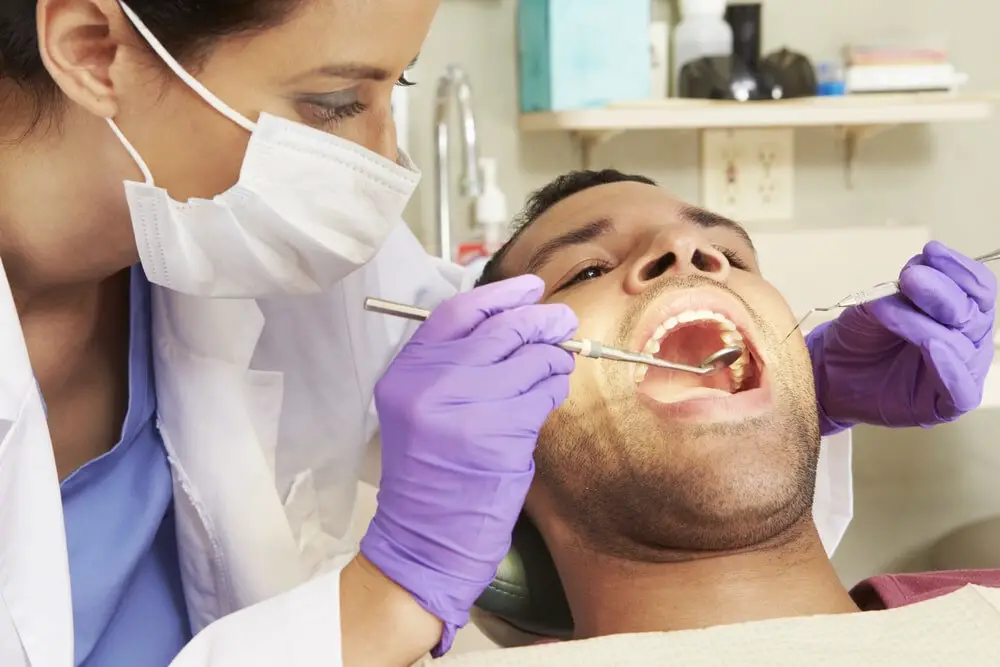
Chewing pain can be a frustrating and uncomfortable experience, making it difficult to enjoy meals and snacks. There are several causes of chewing pain, including tooth decay, gum disease, and tooth fractures. Tooth decay occurs when bacteria in the mouth produce acids that erode the tooth enamel, leading to cavities. These cavities can cause sensitivity and pain when chewing, especially if they are deep and close to the nerve of the tooth. Gum disease, also known as periodontal disease, is another common cause of chewing pain. It occurs when bacteria and plaque build-up on the teeth and gums, leading to inflammation and infection. This can cause the gums to recede, exposing the tooth roots and causing sensitivity and pain when chewing. Tooth fractures can also cause chewing pain, especially if they are deep and expose the nerve of the tooth. Fractures can occur due to trauma, such as a fall or sports injury, or from biting down on something hard or crunchy. In addition to these common causes, there are other factors that can contribute to chewing pain. These include teeth grinding or clenching, which can lead to tooth sensitivity and pain, as well as temporomandibular joint (TMJ) disorders, which can cause pain and discomfort in the jaw joint and surrounding muscles. It is important to identify the underlying cause of chewing pain in order to find the most effective treatment. Depending on the cause, treatment options may include fillings or crowns for tooth decay or fractures, deep cleaning or gum surgery for gum disease, and lifestyle modifications or dental devices for teeth grinding or TMJ disorders. With proper diagnosis and treatment, it is possible to find relief from chewing pain and enjoy meals and snacks without discomfort.
Tooth decay and cavities occur when harmful bacteria in the mouth produce acid that eats away at the enamel of the teeth. This can cause small holes or cavities to form in the teeth, which can lead to pain and discomfort when chewing. Factors that contribute to tooth decay and cavities include poor oral hygiene, a diet high in sugar and carbohydrates, and a lack of fluoride in the water supply. Fortunately, there are steps that can be taken to prevent tooth decay and cavities, such as brushing and flossing regularly, reducing sugar intake, and using fluoride toothpaste and mouthwash. If you are experiencing tooth pain when chewing, it is important to see a dentist as soon as possible to prevent further damage and potentially serious oral health issues.
Gum disease, also known as periodontal disease, is a common condition that affects the gums and bone supporting the teeth. It is caused by bacteria that accumulate in plaque and tartar on the teeth and gums, leading to inflammation and damage to the soft tissues and bones. Gum disease can range from mild gingivitis, which causes gum swelling and bleeding, to severe periodontitis, which can result in tooth loss and other serious complications. Symptoms of gum disease include red, swollen, or tender gums, bad breath, loose teeth, and pain while chewing. Treatment may involve deep cleaning, antibiotics, or surgery in severe cases. Maintaining good oral hygiene and regular dental checkups can help prevent gum disease and preserve healthy teeth and gums.
Cracked or broken teeth can cause excruciating pain while chewing, especially if the damage has reached the root. The severity of the pain depends on the extent of the fracture, which can vary from a minor chip to a complete break. Although teeth are strong and sturdy, they are not indestructible, and various factors can cause them to crack or break. These may include biting on hard objects, dental trauma, grinding, or clenching. The best way to prevent cracked or broken teeth is to practice good oral hygiene and protect them from injury. If you experience tooth pain while chewing, seek dental care immediately to prevent further damage and find relief.
A dental abscess is a painful infection that occurs at the root of a tooth or between the gum and tooth. It is usually caused by bacteria that have entered the tooth through a cavity or crack. The infection can cause swelling, pain, and sensitivity, and can even spread to other parts of the body if left untreated. Treatment for a dental abscess usually involves draining the pus from the affected area, cleaning the infection, and possibly a root canal procedure or tooth extraction. Proper oral hygiene and regular dental check-ups can help prevent dental abscesses from forming. If you experience any symptoms of a dental abscess, it is important to seek treatment from a dental professional as soon as possible to prevent further complications.
Temporomandibular joint (TMJ) disorder is a condition that affects the joint connecting the jawbone to the skull. The TMJ is responsible for the opening and closing of the mouth, and any dysfunction in this joint can cause pain and discomfort while chewing or talking. Common symptoms of TMJ disorder include jaw pain or stiffness, popping or clicking sounds when opening or closing the mouth, headaches, and earaches. The causes of TMJ disorder can vary, including stress, teeth grinding, arthritis, or injury to the jaw. Treatment options for TMJ disorder may include pain medication, physical therapy, and in severe cases, surgery.
Bruxism, commonly known as teeth grinding, is a condition characterized by the clenching and grinding of teeth, often while asleep. While occasional bruxism may not cause harm, chronic bruxism can lead to tooth damage, jaw pain, headaches, and other problems. The exact cause of bruxism is unknown, but some factors that may contribute to the condition include stress, anxiety, sleep disorders, and misaligned teeth. Treatment options for bruxism may include mouth guards, relaxation techniques, and addressing any underlying issues that may be contributing to the condition. If left untreated, bruxism can result in significant discomfort and damage to the teeth and jaw.
Symptoms of Chewing Pain

Chewing pain, also known as odontalgia, is a common dental issue that can cause discomfort and pain while eating. Some of the common symptoms of chewing pain include sensitivity to hot and cold foods or drinks, sharp pain or pressure when biting down, and pain that radiates from the mouth to other areas of the face. In some cases, individuals may also experience swelling, redness, or tenderness in the affected area. It is important to note that chewing pain can range from mild discomfort to severe pain, and can be caused by a variety of dental issues such as tooth decay, gum disease, or dental trauma. One of the most common causes of chewing pain is tooth decay. When the outer layer of the tooth, known as the enamel, is worn down or damaged, it can expose the sensitive inner layers of the tooth to bacteria and other irritants. This can cause inflammation and pain when biting down or chewing. Gum disease is another common cause of chewing pain, as it can cause the gums to become inflamed and tender, making it difficult to eat certain foods. Additionally, dental trauma, such as a chipped or cracked tooth, can cause sharp pain or pressure when chewing. If you are experiencing any of these symptoms, it is important to consult with a dental professional to determine the underlying cause of your chewing pain and receive appropriate treatment.
If you experience sharp or dull pain while chewing, it could be a sign of a dental problem that requires attention. Some possible causes of chewing pain include cavities, cracked teeth, gum disease, or temporomandibular joint (TMJ) disorders. It’s important to consult a dentist to determine the underlying cause of your pain, as prompt treatment can prevent further complications. In the meantime, you can try to alleviate your symptoms by avoiding hard or crunchy foods, using a warm compress on your jaw, practicing stress-reducing techniques, and taking over-the-counter pain relievers as directed. With proper care and treatment, you can find relief from chewing pain and maintain healthy teeth and gums.
Sensitivity to hot or cold temperatures is a common dental issue that can be quite painful and uncomfortable. When you experience this, it means that the enamel on your teeth has worn down, exposing the sensitive underlying layer called dentin. This can be caused by a variety of factors, including tooth decay, gum recession, teeth grinding or clenching, and even aggressive brushing. The good news is that there are ways to manage and alleviate this discomfort, such as using toothpaste designed for sensitive teeth, avoiding extremely hot or cold foods and beverages, and seeking professional dental treatment if the issue persists.
Swelling or redness in the gums is a common issue that many people experience when chewing. This condition, also known as gingivitis, occurs when bacteria build-up in the mouth and cause inflammation. The gums may feel sore or tender to the touch, and may even bleed during brushing or flossing. If left untreated, gingivitis can progress to periodontitis, a more serious condition that can cause tooth loss. To prevent swelling or redness in the gums, it’s important to practice good oral hygiene habits, such as brushing twice a day, flossing daily, and visiting the dentist regularly for cleanings and check-ups.
Difficulty opening or closing the mouth, also known as trismus, can be a frustrating and painful experience. This condition can be caused by a variety of factors, including dental problems, trauma to the jaw or face, or muscle spasms. Trismus can make it difficult to eat, speak, or even yawn, and can lead to further jaw pain and headaches. If you are experiencing difficulty opening or closing your mouth, it is important to speak with a dental professional to determine the cause of your discomfort and find the appropriate treatment. In some cases, simple exercises or stretches can help alleviate trismus, while more severe cases may require medical intervention or even surgery.
Clicking or popping sounds in the jaw are a common symptom of temporomandibular joint disorder (TMJ). This disorder occurs when the joint that connects the jawbone to the skull becomes misaligned or damaged, resulting in pain or discomfort when chewing or opening the mouth. Clicking or popping sounds can be accompanied by other symptoms such as jaw pain, headaches, and difficulty opening or closing the mouth. If left untreated, TMJ can lead to further complications such as tooth wear, gum recession, and even hearing loss. Therefore, it is important to seek professional treatment if you are experiencing any of these symptoms.
Treatment Options for Chewing Pain

Chewing pain can be a frustrating and uncomfortable experience that can affect your daily life. Fortunately, there are several treatment options available to alleviate this discomfort. The first step is to identify the underlying cause of the pain. This can be done by visiting your dentist, who will examine your teeth and gums and perform any necessary tests to determine the source of the pain. Once the cause is identified, the appropriate treatment plan can be developed. One common treatment for chewing pain is a dental restoration, such as a filling or crown. If the pain is caused by a cavity or cracked tooth, a filling or crown can be used to repair the damaged area and provide relief from pain. If the pain is caused by gum disease, treatment may include scaling and root planing to remove plaque and tartar buildup and promote gum healing. In some cases, antibiotics may also be prescribed to combat infection. Additionally, over-the-counter pain relievers such as ibuprofen or acetaminophen can be used to manage pain and inflammation. Ultimately, the best course of action will depend on the individual’s specific needs and the underlying cause of the chewing pain.
Dental fillings or crowns are common restorative treatments for damaged teeth. Fillings are used when the tooth has a small cavity or hole, while crowns are used for more extensive damage or decay. Both treatments are designed to restore the shape and function of the tooth, as well as protect it from further damage. Fillings are typically made from composite resin or amalgam, while crowns are usually made from porcelain or ceramic. Your dentist will recommend the best option for your specific situation, taking into account factors such as the size and location of the damage, the condition of the tooth, and your personal preferences. With proper care, dental fillings and crowns can last for many years and allow you to enjoy your favorite foods without pain or discomfort.
Root canal therapy is a dental procedure that involves removing the infected or damaged pulp tissue from the root canal of a tooth, cleaning and shaping the canal, and then filling it with a sealing material. This treatment is typically necessary when a cavity or injury has caused the pulp tissue to become inflamed or infected, leading to severe pain and sensitivity. Although root canal therapy has a reputation for being painful, modern techniques and anesthesia make the procedure relatively comfortable. After the treatment, patients can expect to experience some mild discomfort and sensitivity for a few days, but this can be managed with over-the-counter pain medications. Overall, root canal therapy is a highly effective way to save a damaged or infected tooth and relieve the associated pain.
Antibiotics are commonly prescribed by dentists to treat infections that can cause toothache while chewing. These medications work by killing the bacteria causing the infection, thereby reducing pain and inflammation. It is important to note that antibiotics are not effective in treating all types of tooth pain, and they should only be used when necessary. Overuse of antibiotics can lead to antibiotic resistance, which can make it difficult to treat infections in the future. Dentists may also recommend other forms of treatment, such as a root canal or extraction, depending on the severity of the infection and the condition of the affected tooth.
Pain relievers can be an effective way to alleviate tooth pain while chewing. Over-the-counter options such as ibuprofen or acetaminophen can help reduce inflammation and discomfort. For more severe pain, a dentist may prescribe stronger medications such as opioids. However, it’s important to use pain relievers as directed and not rely on them as a long-term solution. It’s also crucial to identify and address the underlying cause of the tooth pain to prevent further damage and discomfort.
Mouthguards are an effective solution for people who suffer from bruxism, which is the medical term for teeth grinding and clenching. These oral devices are custom-made to fit the patient’s teeth and provide a protective barrier between the upper and lower teeth. They work by absorbing the force of the grinding and clenching, which reduces the pressure on the teeth and minimizes the risk of damage. Mouthguards are available in a variety of materials, including soft, hard, and dual-layered, and can be worn at night or during the day. They not only alleviate the pain and discomfort associated with bruxism but also prevent further damage to the teeth and jaws, making them an essential tool for anyone dealing with this condition.
One of the main causes of jaw pain while chewing is stress, which can lead to clenching and grinding of teeth. To reduce stress on the jaw, lifestyle changes can be made, such as practicing relaxation techniques like deep breathing or meditation. Additionally, avoiding hard or chewy foods that require excessive jaw movement can help alleviate discomfort. Maintaining good posture and avoiding leaning on the chin or jaw can also help reduce stress on the jaw. Overall, incorporating healthy habits such as exercise, a balanced diet, and getting enough sleep can also contribute to reducing stress and improving overall oral health.
Prevention of Chewing Pain
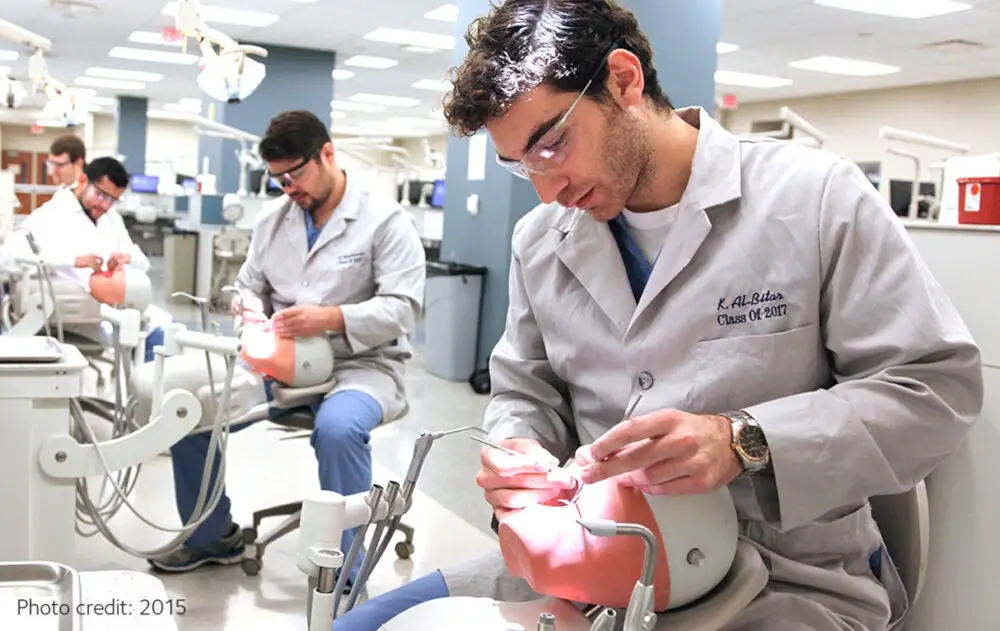
Chewing pain can be a debilitating and frustrating experience for many individuals. Fortunately, there are several steps you can take to prevent it from occurring. One of the most important things you can do is to maintain good oral hygiene practices. This means brushing your teeth twice a day, flossing regularly, and using mouthwash. These practices help to remove food particles and bacteria from your mouth, which can contribute to pain and discomfort when chewing. Another way to prevent chewing pain is to avoid foods that are hard or difficult to chew. This includes things like nuts, hard candies, and tough meats. Instead, opt for softer foods that are easier on your teeth, such as cooked vegetables, soft fruits, and tender meats. You can also try cutting your food into smaller pieces or chewing on the opposite side of your mouth to alleviate pressure and reduce pain. Additionally, wearing a mouthguard or orthodontic appliance can help to protect your teeth and prevent damage that can lead to pain and discomfort when chewing. By taking these preventative measures, you can reduce your risk of experiencing chewing pain and enjoy your meals with ease.
Regular dental checkups are an essential aspect of maintaining good oral health. These checkups allow dentists to identify any problems early on, such as cavities or gum disease, and take the necessary steps to prevent them from worsening. Moreover, dental checkups are an opportunity for dentists to inspect the overall health of your mouth, including the condition of your teeth, gums, tongue, and throat. They may also provide a thorough cleaning, which can remove any plaque or tartar buildup that may be causing discomfort while chewing. By attending regular dental checkups, you can prevent tooth pain and ensure that your mouth remains healthy and functional for years to come.
Brushing and flossing daily are essential habits to maintain good oral health and prevent tooth pain while chewing. Brushing twice a day helps to remove plaque, bacteria, and food particles that can cause tooth decay, gum disease, and sensitivity. It is important to use a soft-bristled toothbrush and fluoride toothpaste to clean the teeth and gums gently. Flossing once a day helps to remove plaque and food debris from between teeth and along the gum line, where a toothbrush cannot reach. By practicing good oral hygiene habits, individuals can avoid tooth pain while chewing and maintain a healthy smile.
Using fluoride toothpaste and mouthwash is an essential part of maintaining good oral hygiene and preventing tooth decay. Fluoride is a mineral that helps to strengthen the enamel on your teeth, making them more resistant to acid attacks from bacteria and sugary foods. Regular use of fluoride toothpaste and mouthwash can help to prevent cavities and other dental problems, while also promoting healthy gums and fresh breath. When brushing, it is important to use a pea-sized amount of toothpaste and to brush for at least two minutes, twice a day. Mouthwash can be used after brushing to help kill bacteria and freshen your breath. By incorporating fluoride toothpaste and mouthwash into your daily dental routine, you can help keep your teeth strong and healthy for years to come.
In addition to finding relief from chewing pain, it is important to maintain a balanced diet to ensure overall oral health. A balanced diet includes a variety of foods from each food group, such as whole grains, fruits, vegetables, lean proteins, and low-fat dairy. These foods provide essential nutrients for strong teeth and gums, such as calcium, vitamin D, and phosphorus. Avoiding sugary and acidic foods and drinks can also help prevent tooth decay and erosion. Additionally, drinking plenty of water can help flush out harmful bacteria and keep the mouth hydrated. By eating a balanced diet and practicing good oral hygiene habits, individuals can maintain healthy teeth and gums and reduce their risk of experiencing chewing pain.
Avoiding hard and sticky foods is essential to prevent further damage to your teeth when you are experiencing chewing pain. Hard foods such as nuts, popcorn, and hard candies can cause cracks and fractures in your teeth, making them more sensitive to pressure and temperature changes. Sticky foods like chewing gum, caramel, and taffy can stick to your teeth and dental work, causing discomfort and even pulling out fillings or crowns. Instead, opt for softer foods that require less chewing, such as cooked vegetables, pasta, and scrambled eggs. If you must eat hard or sticky foods, try to cut them into smaller pieces or chew them on the opposite side of your mouth to alleviate pressure on the affected area.
Chewing pain, also known as masticatory pain, is a common dental problem that can range from mild discomfort to severe pain. The most common causes of chewing pain include tooth decay, gum disease, cracked or broken teeth, and temporomandibular joint disorder (TMD). Tooth decay and gum disease can cause inflammation and sensitivity in the teeth and gums, while cracked or broken teeth can expose the nerve endings and cause sharp pain while chewing. TMD, on the other hand, affects the jaw joint and muscles, causing pain and discomfort while chewing or talking. If you experience chewing pain, it is important to visit a dentist to diagnose the underlying cause and find the appropriate treatment to alleviate the pain and prevent further damage.
It is crucial to seek treatment and prevention for any dental pain, including chewing pain. Ignoring the problem may lead to more significant and expensive dental issues that are harder to treat. Seeking treatment from a dental professional can help diagnose and address the underlying cause of the pain, which may be anything from tooth decay to a misaligned bite. Additionally, preventive measures such as regular dental cleanings and check-ups, a healthy diet, and proper oral hygiene can help prevent dental pain altogether. Taking care of your dental health should be a top priority to ensure your overall well-being and quality of life.
Experiencing pain while chewing is not only uncomfortable but can also be a sign of a dental problem that requires attention. Ignoring the pain could lead to more serious oral health issues down the line. Therefore, it is highly recommended to schedule a dental appointment as soon as possible to address the issue and find relief. A qualified dentist can identify the root cause of the pain and offer appropriate treatment options to alleviate discomfort and prevent further damage. Don’t let chewing pain interfere with your daily life, take action and seek professional help to ensure your oral health remains in top condition.
Conclusion
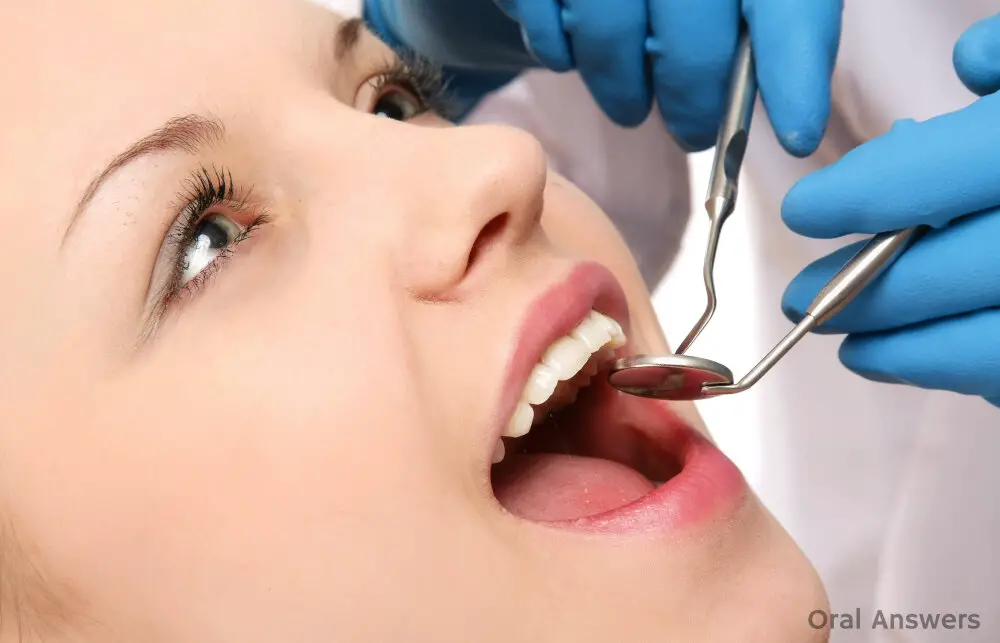
In conclusion, experiencing chewing pain can be a frustrating and uncomfortable experience, but understanding the reasons behind it and knowing how to find relief can make all the difference. It could be caused by a variety of factors such as tooth decay, gum disease, or even stress. The key is to identify the underlying issue and address it accordingly. Seeking the advice of a dental professional can provide valuable insight and guidance towards finding a solution. In addition, maintaining good oral hygiene practices, avoiding hard or sticky foods, and using pain relief products can also help alleviate the discomfort. By taking proactive steps towards managing chewing pain, individuals can enjoy their favorite foods and improve their overall quality of life.


